As WL Central reported earlier, the Greek SKAI media group has access to all of the US state cables and has begun reporting on them. These are WL Central articles based on the cables being released from SKAI.
Greek Riots of December 2008 – What happened and how they impact U.S. interests.
In the cable dated December 18th 2008, the American ambassador in Athens describes the social and other causes that lead to turmoil in the Greek capital after the murder of the 16 year old Alexis Grigoropoulos by a police officer.
Daniel Speckhard criticizes PM Konstantinos Karamanlis, talking about "lack of Karamanlis", while, referring to the causes of the unrest, he claimed that the Greek media have covered the events of the assassination "irresponsibly and inflammatory". Moreover, he called the two parties of the Left, Communist Party and SYRIZA "dinosaurs". Finally, he characterized the Greek security forces as “demoralized” and “weakened by post-junta limits and public distrust”.
He continues with a current assessment of the ruling party, noting its reluctance to push through reforms and the resistance it encounters from various interest groups.
He concludes noting that the Karamanlis’ government will now be even more inward-looking than before and that the Americans will now have to “monitor aggressively the growing domestic terrorist threat”.
Comments about the Papandreou government
In November 2009, the US ambassador sent to the State Department, the 09ATHENS1661 cable in which he describes the first seven weeks of Papandreou government. He refers to the operating mechanism of the PM’s office, the governmental policies that didn’t prosper and the dichotomy in the political culture of the ruling party’s executives.
Yesterday, the Greek newspaper "Kathimerini" started publishing US state cables relating to Greece with a six page review of the cables focused on Greek political figures and current items of interest. Tonight Greek TV station SKAI TV and web site skai.gr will also begin reporting on the cables.
"The New Files" newsprogram along with SKAI TV, skai.gr and the daily "Kathihimerini" has gained access to all 250.000 US embassy cables leaked to Wikileaks exclusively for Greece. The access has been granted by the Norwegian newspaper Aftenposten. More on "The New Files" broadcast Monday March 21 at 23.00.
SKAI TV, skai.gr and the newspaper Kathimerini are all part of the SKAI Group, one of the largest media groups in Greece.
Greece had a mini-Wikileaks scandal on January 13, 2011 when Regional Development Minister Michalis Chrysochoidis was quoted in a cable telling former US ambassador in Athens regarding Greece’s National Intelligence Service (EYP): “EYP is nothing. It does not serve its mission of protecting Greece and in fact is dangerous to national security because of its many shortcomings, not least of which is a unionized labor force.” He is also reported as saying that Greek police know the identity of virtually all members of domestic terrorist groups but do not have the evidence to prosecute them.
Last Thursday, 17th March, Wikileaks announced the first partnership with a newspaper in Turkey on releasing around 11,000 U.S. State Department cables regarding Turkey from between 2000 and 2010 to Taraf, a liberal Turkish newspaper . Publishing since late 2007, Taraf has distinguished itself by opposing interference by the Turkish Military in civilian affairs. After Taraf revelations made on June 21 (2008) regarding the Egenoton (an alleged clandestine, ultra-nationalist organization in Turkey with ties to members of the country's military and security forces), when Adnan Demir, who was on the editorial staff of Taraf, was charged with leaking secret military information, the military responded by canceling the newspaper's accreditation for press releases at its headquarters for a short time. Taraf itself is also a whistle-blower journal, since Turkish military leaks were published on its pages more than once. Taraf holds a very good reputation worldwide, the journal was quoted by Der Spiegel, Times Online and such others as "Courageous," "independent," "plucky," and "scrappy".
Because of heavy political persecution on Taraf, deriving from its famously bad relationship with the Turkish Military, most enterprises have a fear of advertising in the journal and its pages present very little propaganda. Various suspicions about who supports Taraf were always present in Turkish people’s mind. Rumors that the CIA or the major party AKP are financially responsible for Taraf still exist among the public. The jewish millionaire who described himself as Taraf’s supporter gave an interview to NYT in 2009.
WL Central will be updating news on Bahrain, with new items added at the top. All times are ET in USA. You can contact me on twitter @carwinb or by email at carwinb@hushmail.com. Don't send media when links available. Most email is not encrypted and not anonymous. I cannot guarantee anyone's safety in transmission.
Current time and date in Manama, Bahrain:
Send Arabic #firstaid images by MMS/SMS/email or print as fliers usng http://bit.ly/gv3tS #Bahrain.
See continuing March or February WL Coverage of Bahrain.
 WL Central will be updating news on Libya, with new items added at the top. You can contact me on twitter @GeorgieBC or by email at admin@wlcentral.org.
WL Central will be updating news on Libya, with new items added at the top. You can contact me on twitter @GeorgieBC or by email at admin@wlcentral.org.
Current time and date in Tripoli:
MONDAY, March 21
The US stated that Muammar Gaddafi was "not a target" as CNN reports that coalition forces have bombed Gaddafi's compound.
Admiral Mike Mullen, the chairman of the US joint chiefs of staff, denied that any civilians had been killed during the launching of 110 missiles and the bombing of 20 targets.
Arab League chief Amr Moussa on Sunday condemned the "bombardment of civilians" and called for an emergency meeting of the group of 22 states to discuss Libya. He requested a report into the bombardment, which he said had "led to the deaths and injuries of many Libyan civilians. What is happening in Libya differs from the aim of imposing a no-fly zone, and what we want is the protection of civilians and not the bombardment of more civilians," Egypt's state news agency quoted Moussa as saying.
Edward Djerejian, a former US assistant secretary of state and former US ambassador to Syria, said it had been made very clear that a no-fly zone could not be established without taking military action against airfields and anti-aircraft installations. "A no-fly zone is not just a computer model game," he told Al Jazeera. "It means military action and that was clear to all parties, including the Arab League."
The Libyan military announced its second ceasefire since the UN resolution authorising the no-fly zone was passed. But the White House has said it will not recognise a ceasefire declaration.
US president Obama is working to "try to shore up support within the Arab world for the military mission in Libya."
The Mail Online reports:

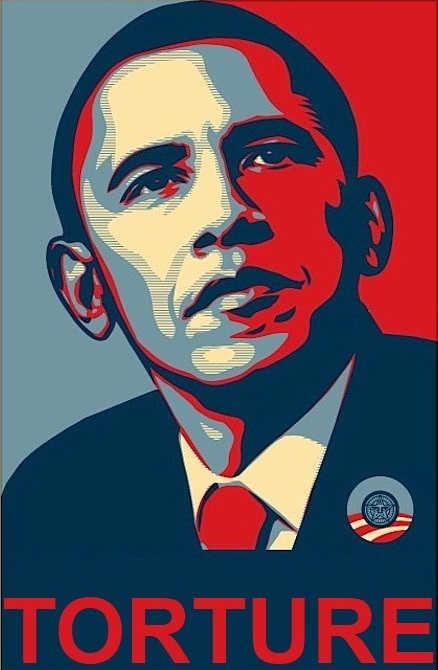 Bradley Manning's inhumane treatment during his pretrial incarceration looks set to become a millstone around Obama's neck in his dealings with other countries.
Bradley Manning's inhumane treatment during his pretrial incarceration looks set to become a millstone around Obama's neck in his dealings with other countries.
Today, International Bradley Manning Support Day, marks also the announcement of a campaign to have the United States president arrested once he arrives on Irish soil, during a planned visit to the Western European democracy in May. The #ArrestObama #May22 campaign holds that Ireland has an obligation under international law to pursue and prosecute all those within its jurisdiction who carry out or authorize torture, or who permit torture to be carried out, or who obstruct bringing those who do so to justice.
The campaign makes the claim that Obama's failure to prosecute high-ranking Bush administration officials - as well as the cruel and inhumane treatment to which U.S. military whistleblower Bradley Manning is being subjected in the Marine brig in Quantico - constitutes ownership of responsibility for torture.
The campaign comes at an inconvenient moment for the new Fine Gael/Labour coalition government, elected mid-last-month in a landslide ousting of the previously dominant Fianna Fail party. The new government will be seeking to establish strong diplomatic ties with the United States, in the hopes that this will reap benefits in the face of Ireland's withering economic situation. In November, the last Irish government revealed that it had negotiated a deal with the International Monetary Fund, in response to the deepening crisis in the banking sector. Any matter that jeopardizes the precarious bargaining position of the tiny European state will likely frustrate the fledgling government.
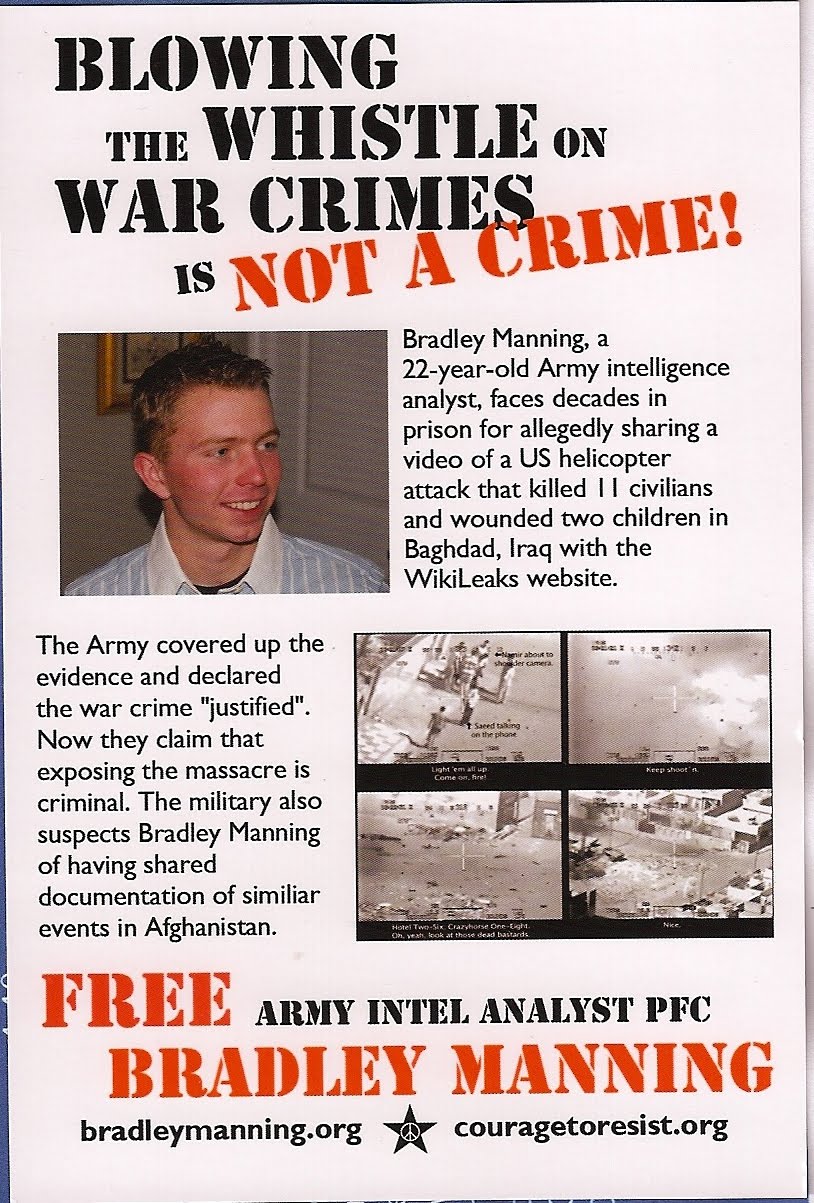
As Human Rights Watch joins Amnesty in calling for the US to explain or desist from the abuse of Bradley Manning, support for Manning has increased around the world. MP Ann Clywd questioned UK Foreign Secretary William Hague regarding Manning's treatment at the meeting of the House of Commons’ Foreign Affairs Committee yesterday (transcript available at UK Friends of Bradley Manning) and she again brought up his treatment today, this time by formally requesting during Business Questions in the Commons that a debate be held on the conditions of Manning's detention. She explicitly compared Manning's treatment to that "meted out" to prisoners at Guantanamo. In his reply, Sir George Young, leader of the House of Commons, did not disavow the comparison to practices at Guantanamo. He said that the concerns conveyed by Clwyd are "widely shared" and agreed that Manning's case was a "suitable subject for debate" in the Commons.
WL Central will be covering the Bradley Manning protests in Quantico this weekend. Currently, protesters were warned to leave the site, 118 stayed past the final warning, arrests have begun. FireDogLake reports that the director of operations at Quantico Marine Base issued a “threat advisory” regarding the protests this weekend.
Details of the protests and how to get to one here. For more information regarding Bradley Manning and supporting him, please go here.


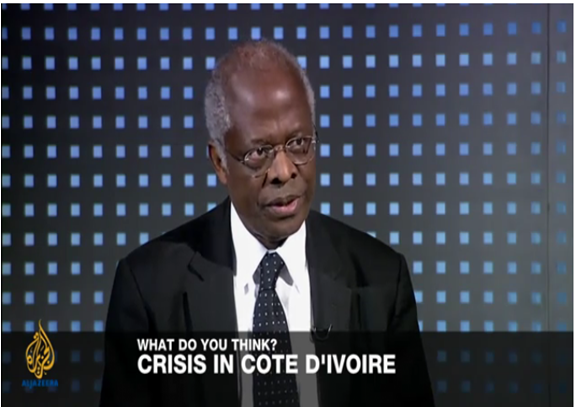
Douoguih: The real reason we’re watching a tragedy in Ivory Coast is that president Gbagbo is a democrat; he is a modern Mandela. He spent 30 years in the opposition. He is not a violent man. He doesn’t have a bank account outside the Ivory Coast. He doesn’t own property anywhere. But his vision is that it is the true emancipation of Ivory Coast. France is afraid of that, because all the former colonies would follow his example, and France would be a big loser. That is what’s at stake in Ivory Coast right now.
Kahn: Let me ask you why they(U.S, UN and France) want Ouattara to be the president?
Douoguih: Here is the reason. Ivory Coast is very rich. And as I told you earlier, president Gbagbo’s vision of running Ivory Coast involves total emancipation. Freedom to deal with all commerce. France does not accept that.”
And leaked cables suggest that the core of the alleged conspiracy is completely groundless in current post-Chirac African policies of France.
The French Conspiracy of Gbagbo government:
“France vetoes Gbagbo government to dominate economy and politics of Ivory Coast”
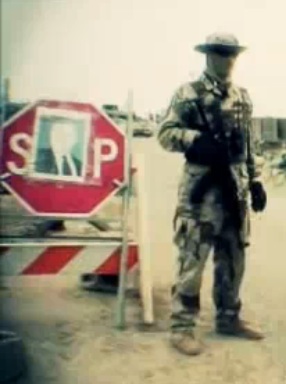 This date, March 19, 2011, marks the beginning of the ninth year of the US war in Iraq. The war, which began in 2003 with a bombing campaign of “shock and awe," has for years been more of an occupation than a war. Despite the fact that many believe the war is over (especially Americans), the US still has 47,000 troops in Iraq and, despite a 2011 withdrawal date, will likely continue to have tens of thousands of soldiers based in Iraq for years to come.
This date, March 19, 2011, marks the beginning of the ninth year of the US war in Iraq. The war, which began in 2003 with a bombing campaign of “shock and awe," has for years been more of an occupation than a war. Despite the fact that many believe the war is over (especially Americans), the US still has 47,000 troops in Iraq and, despite a 2011 withdrawal date, will likely continue to have tens of thousands of soldiers based in Iraq for years to come.
The past year has seen the world learn a great deal about the US war and occupation of Iraq. With the WikiLeaks release of US State Cables, the Iraq War Logs, and a “Collateral Murder” video showing US soldiers firing on journalists and innocent civilians from an Apache helicopter, the criminal nature of the war and occupation has become more evident. To mark the end of eight years of US troops in Iraq and the beginning of a ninth year, it is worth noting the many revelations on Iraq that have become known thanks to WikiLeaks.
On October 22, 2010, 390,000 field reports, which became known as the Iraq War Logs, showed the regular use of abuse, brutality and torture used on Iraqis by Iraqi Police and Iraqi Security Forces. The logs revealed, despite US claims, a tracking of civilian deaths had been going on, and, in fact, 66,000 civilian deaths (15,000 which were previously unknown) had occurred.
WL Central published an article two days ago, outlining the extraordinarily heavy handed redaction by the Guardian of a Bulgarian cable. Wikileaks tweeted the article, saying it was "Another very serious example of the Guardian "cable cooking" in violation of WikiLeaks agreements". Guardian investigations editor David Leigh responded with "@wikileaks Another stupid lie from #Assange alleging 'cable censorship' by #Guardian, (stuck with UK libel laws as he knows). What a liar!"
Wikileaks did not however, accuse the Guardian of cable censorship, they accused them of "cable cooking". A closer inspection of what happened in this one instance of cable redaction by the Guardian indicates that the Wikileaks description was closer to the mark. In fact, an examination of this document brings a feeling that the world will be in for Cablegate 2.0 when we finally get to see these cables without Guardian redaction.
The redaction on this particular cable is best shown here. The parts redacted by the Guardian are in green.
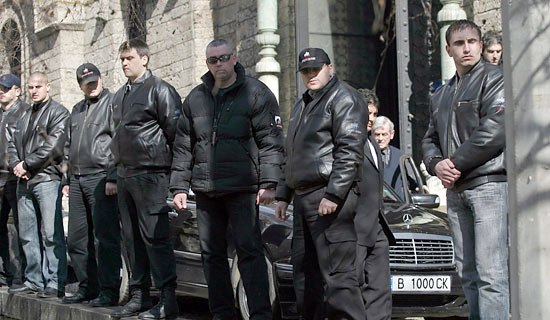
В края на декември 2010 г. сайтът Wikileaks даде начало на скандала Cablegate: публикацията на 251 287 секретни американски дипломатически телеграми. До този момент в сайта са публикувани 5000 телеграми или около 2% от цялата база. Осем от публикуваните до момента телеграми са от американското посолство в София.
Общо в базата данни на Wikileaks има 978 дипломатически телеграми от посолството на САЩ в София. В още 66 грами от други посолства се среща етикетът Bulgaria.
На 1 декември 2010 г. Гардиън публикува в сайта си дипломатическа телеграма на американското посолство в София за организираната престъпност в България.
На 7 декември 2010 Монд публикува обзорен материал за влиянието на руската мафия в Европа, в който също се цитира грамата, подписана от посланик Джеймс Пардю.
От статията в Монд научаваме също, че има и друга телеграма датирана от 11 септември 2009 г., която също е посветена на българската организирана престъпност. В нея има раздел "Руска връзка", където се коментира представителят на Майкъл Чорни в България – адвокатът Тодор Батков. Посолството подчертава неговите солидни политически връзки и факта, че през 2008 г. е награден от президента Георги Първанов с най-високото държавно отличие орден „Стара планина”.
Десет дни след публикацията в Монд, на 17 декември 2010 в сайта на Wikileaks беше публикуван цензурираният от Гардиън текст на дипломатическата телеграма от 7 юли 2005, подписана от посланик Джеймс Пардю.
Текстът на телеграмата от септември 2009 така и не видя бял свят и до този момент единствено журналистите от изданията акредитирани от Wikileaks са запознати с него.

Bulgarian translation here.
As described in an article on WL Central yesterday, 2011-03-17 Unredacted cable from Sofia shows the total invasion of the state by organized crime, a cable which had 3/4 of its text redacted by the Guardian has now been published in full. This WL Central writer is also a member of the web site Bivol which published the unredacted cable.
Why did The Guardian and Le Monde Conceal Information about Crime in Bulgaria?
The stated policy of Wikileaks is to not publish the original texts of the cables, but rather censored versions, edited by the teams of their partner media, after the latter have examined the content of the documents. This way media, known for their professionalism and good reputation, offer a guarantee the names of informers and third parties and their identities would not be revealed.
Wikileaks have chosen this model in order to not endanger the lives of intelligence agents and informers as it happened after the publication of documents about the US and its allies’ military operation in Afghanistan. At the time, even staunch supporters of freedom of speech, such as “Reporters without Borders,” voiced strong and grounded criticism of Julian Assange.
One cannot help it, but note that in the published cable from July 7, 2005, the section “Who Is Who in Bulgarian Organized Crime” abounds with censored paragraphs. We can only guess the reason of the Guardian journalists to conceal individuals and businesses the Embassy believes are part of organized crime. The names of these individuals and businesses, along with information about alleged ties with organized crime, are nothing new for the Bulgarian and international audience.
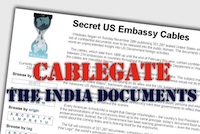 India cables released to The Hindu have created a storm in the past days. Now, The Hindu reports that the US State Department warned the India government of the “existence of such communications on December 23, 2010. Secretary of State Hillary Clinton called External Affairs Minister S.M. Krishna and spoke to Krishna about WikiLeaks. She warned the government of “potentially embarrassing disclosures.”
India cables released to The Hindu have created a storm in the past days. Now, The Hindu reports that the US State Department warned the India government of the “existence of such communications on December 23, 2010. Secretary of State Hillary Clinton called External Affairs Minister S.M. Krishna and spoke to Krishna about WikiLeaks. She warned the government of “potentially embarrassing disclosures.”
On December 21, 2010, then-State Department spokesman P.J. Crowley said, “Those mutual interests are unchanged by any document that has been released by WikiLeaks. We are going to do this one day at a time, one action at a time. The Secretary continues to have regular contacts either in person or in phone calls with world leaders. This issue comes up, and without exception, the leaders reassure her that notwithstanding whatever ripples have been created by these revelations, our relations with these countries will continue because they're important.”
The key cable creating a massive political crisis in India was sent out from Consulate Chennai on May 13, 2009. A US diplomat writes:
The subject of politicians bribing voters, with either cash or gifts, was a recurring theme in the course of covering the 2009 election campaigns in South India. Wherever we went, journalists, politicians, and voters spoke of the bribes as a commonly accepted fact of the election process. Political insiders, and in some instances candidates themselves, admitted to us that candidates regularly violate India's election rules in the course of campaigning for office. This cable examines methods by which political parties bribe voters and how those bribes affect elections in India.
Analysis of unedited cable: 2011-03-18 Bulgarian Organized Crime Uncensored
2011-03-19 Bulgarian "Criminal Radiation" Leaks from Unedited Wikileaks Cable
Bulgarian translation of both articles here.
UPDATE: The Wikileaks site has now been updated with the uncensored version of the 05SOFIA1207 cable. The full text scores 5226 words compared to the 1406 words in the Guardian redacted version published on December 1 2010. The redactions are shown clearly here (thanks to commenter rhill for pointing it out). The parts that were redacted are green.
At the end of November, 2010, Wikileaks triggered the Cablegate scandal: the release of 251 287 secret American diplomatic cables. Currently, the site has published 5 000 cables or about 2% of the entire database. Eight of them are from the American Embassy in Sofia.
The Wikileaks site has a total of 978 diplomatic cables from the US Embassy in Sofia. There are another 66 cables with the tag Bulgaria.
On December 1, 2010, The Guardian published on its site the diplomatic cable of the American Embassy in Sofia dedicated to organized crime in Bulgaria.
On December 7, 2010, Le Monde published an overview about the influence of Russian mafia in Europe, also citing the cable, signed by then Ambassador to Sofia, James Pardew.
Human Rights Watch has issued a statement demanding that the US government explain the "extremely restrictive and possibly punitive and degrading treatment" of PFC Bradley Manning in pre-trial detention at Quantico Marine base in Virginia:
According to regulations governing operation of the brig issued by the secretary of the Navy, when a prisoner has been assessed to no longer pose a suicide risk by a medical officer they should be returned to appropriate quarters. According to a complaint filed by Manning, on 16 occasions military mental health professionals recommended that he be removed from POI status. While Manning's complaint was made public by his lawyer, the brig commander has not released the brig's formal response to his allegations. If Manning agrees to the release of medical or mental health information that would otherwise be confidential to protect his privacy, the government should immediately make public its rationale for his continued POI status.
... The new charges filed against Manning, for which the death penalty is possible, include aiding the enemy, even though Manning allegedly provided documents to WikiLeaks, not an agent of a government or armed group at war with the US. The removal of Manning's underwear during the evenings began the same day the additional charges were filed.
The language of the HRW statement approaches that of the ACLU's warning that Manning's treatment may be unconstitutional, as we reported here. That report has been updated with news of Ann Clwyd's question in the House of Commons today, the leader's lack of objection to her comparison between Manning's situation and that of prisoners at Guantanamo, and a transcript and video of Clwyd's exchange yesterday in committee with Foreign Minister William Hague.
Update: Ann Clwyd MP's question today, 17 March, in the Commons, on the turn
 MP Ann Clwyd (L-Cynon Valley) today raised the question of the treatment of PFC Bradley Manning at the Quantico military base in Virginia with the foreign secretary, William Hague, during his testimony before the Commons Foreign Affairs Committee. (The exchange between Clwyd and Hague appears in the last several minutes here.)
MP Ann Clwyd (L-Cynon Valley) today raised the question of the treatment of PFC Bradley Manning at the Quantico military base in Virginia with the foreign secretary, William Hague, during his testimony before the Commons Foreign Affairs Committee. (The exchange between Clwyd and Hague appears in the last several minutes here.)
Although Hague stood on legal formalities in his reply -- he cannot take a position without Manning's consent; Manning has stated that he does not consider himself a UK citizen; and it is up to Manning's US lawyer to seek redress of any treatment he considers unlawful -- he made one significant concession. At the close of his remarks he said voluntarily that the concerns of UK citizens about Manning's treatment would be brought to US diplomatic attention because they had been raised in a parliamentary committee.
Earlier in the day, an interview with Manning's friend David House, who has been talking to support networks in the UK this week, was published in the Guardian.
 On March 12, 2001, in Colombia, then-president and vice president of Sintramienergetica, were both picked up by men of the the United Self-Defense Forces of Colombia (AUC), a terrorist paramilitary force in Colombia that has at this point been mostly dissolved. According to El Espectador, a Colombian newspaper (that has partnered with WikiLeaks), the trade unionist leaders were murdered in Locarno and transported in a van to Orcasita where they were found dead hours after being killed.
On March 12, 2001, in Colombia, then-president and vice president of Sintramienergetica, were both picked up by men of the the United Self-Defense Forces of Colombia (AUC), a terrorist paramilitary force in Colombia that has at this point been mostly dissolved. According to El Espectador, a Colombian newspaper (that has partnered with WikiLeaks), the trade unionist leaders were murdered in Locarno and transported in a van to Orcasita where they were found dead hours after being killed.
Sintramienergetica is a trade union that has workers that do labor for a US company based in Alabama, Drummond Coal. The history between the trade union and the coal giant has been tumultuous. Paramilitary leaders alleged to be responsible for the murders of the two trade unionists have gone on trial with Drummond being accused of handing over a suitcase of money to leader Rodrigo Tovar Pupo asking him to help “remove barriers” the union was creating for the company.
Wednesday's forum on the tribulations surrounding WikiLeaks was timely and a much-needed shot in the arm for political discourse in Australia.
Framed through the lens of Julian Assange and WikiLeaks' David and Goliath struggle against the machine, the dominant theme of the night was the questioning of Australia's political identity and sovereignty in its unbalanced relationship with the United States, and how this imbalance has manifested itself in the lack of political and legal support provided to its citizens. Hence, some parallels between Julian Assange and previous Gitmo detainees David Hicks (present in the audience) and Mamdouh Habib were repeatedly made. On some levels, this may be seen as incongruous - Hicks and Habib were terror suspects, whereas Assange, despite hostile rhetoric, has not been accused of terrorism by a prosecuting authority - but the import of drawing these parallels is the same.
Open to the public, the seats inside Sydney's stately Town Hall filled up quickly, no doubt due to the caliber of the panelists rather than the rain pouring outside. The night's proceedings were emceed by Mark Kostakidis, veteran of Australian public broadcaster SBS. The speakers were the award-winning journalist John Pilger, member for Australian Federal Parliament and famous Iraq war whistleblower Andrew Wilkie, and tireless human-rights campaigner Julian Burnside QC.
Indeed, there were no "hawks" on the panel to provide opposition to the overall theme of libertarianism - not that the audience present minded, for this forum was a chance to escape the endless diatribes of said hawks, who are already in the privileged position of being able to pollute the airwaves, print and the web, stifling such fora under hackneyed pretexts of "national security" (to name but one).
Theme by Danetsoft and Danang Probo Sayekti inspired by Maksimer